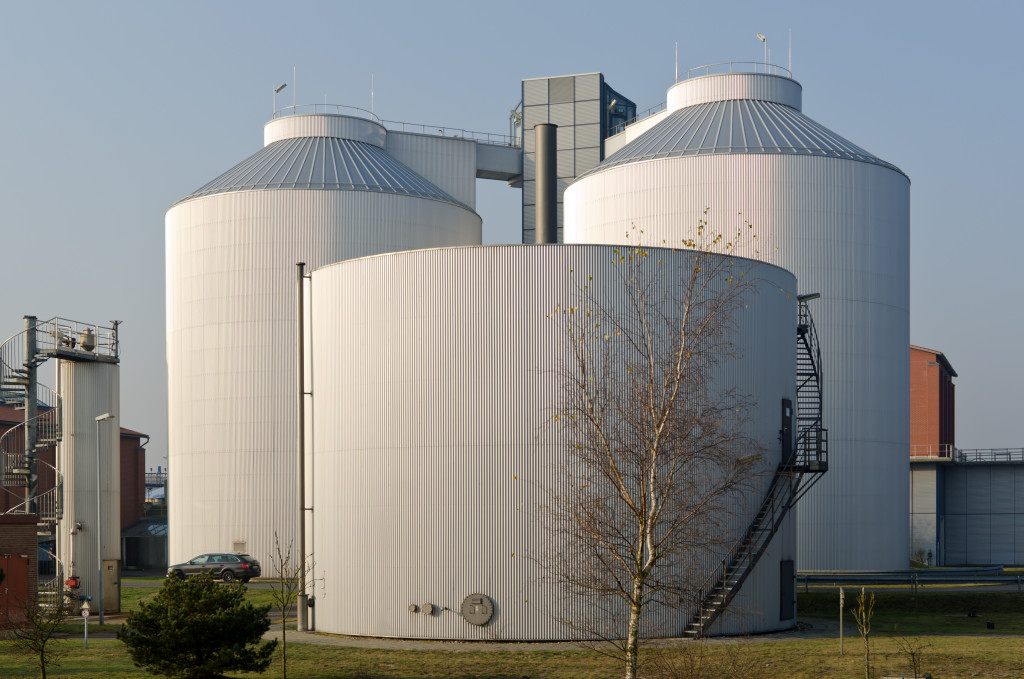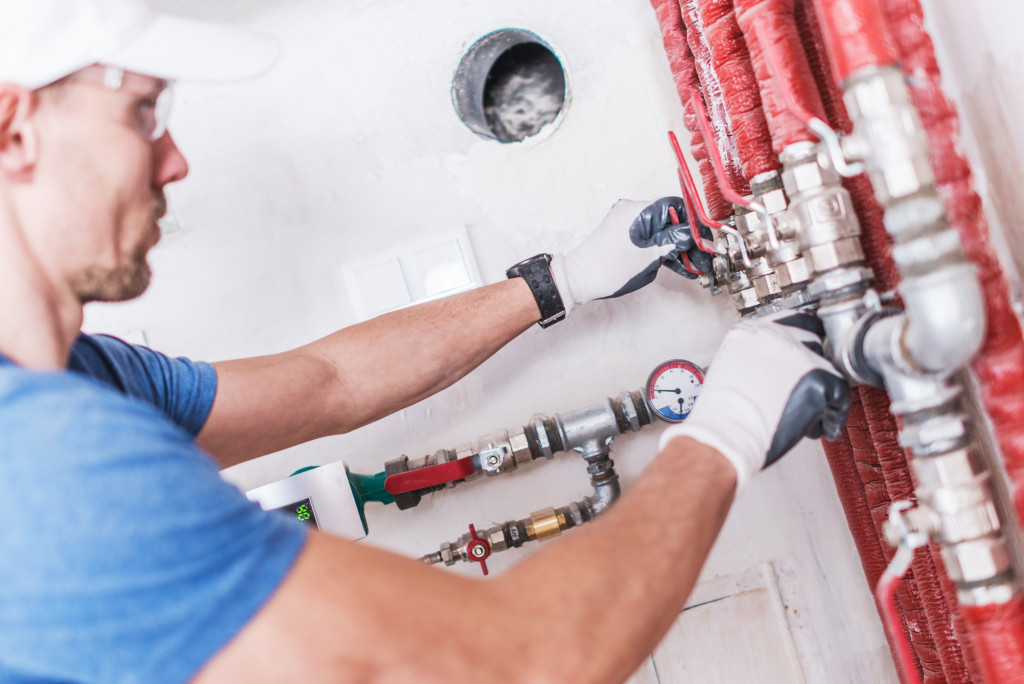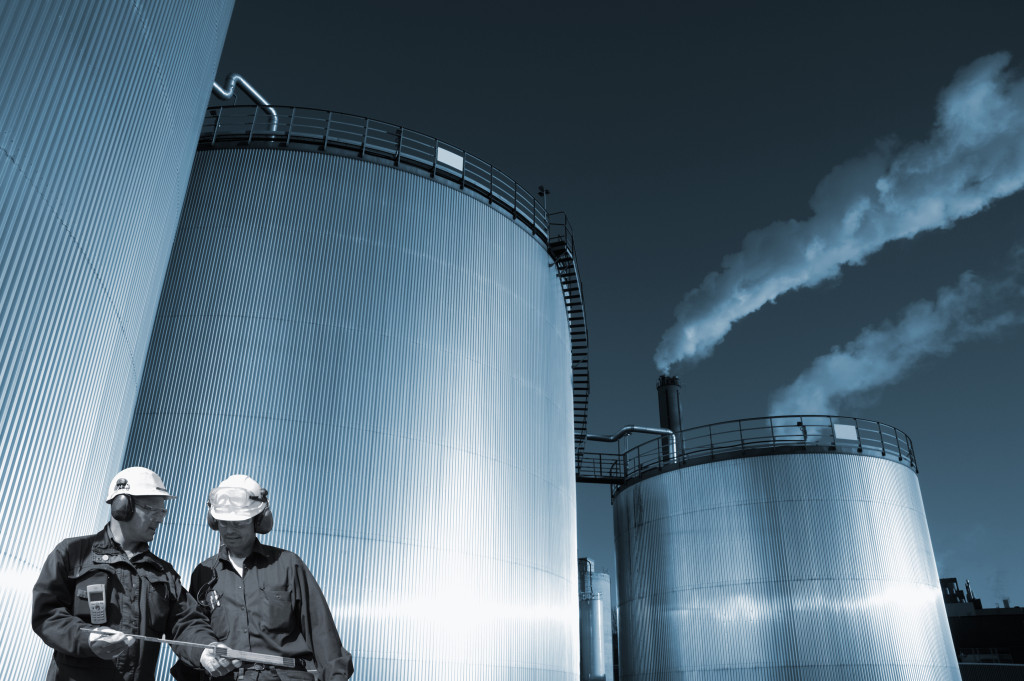- Pressure vessels are designed to store and transport gases and liquids under high pressure for safe operations.
- Heat exchangers regulate temperature, reducing energy waste and optimizing product quality.
- Storage tanks are used to store crude oil, refined products, and chemicals for uninterrupted production.
- Pumps and valves control the flow of materials within the refinery, ensuring smooth operations and reduced maintenance costs.
- Process control system infrastructure collects data for real-time adjustments, improving safety, accuracy, and profitability.
Operating a successful petroleum refinery requires reliable and efficient machinery and equipment. This article will explore some of the most essential equipment used in petroleum refineries today and their various functions and benefits. With this information, you can better understand how these tools contribute to safe and effective production processes in refineries worldwide.
Manufacturing Equipment
There are various manufacturing equipment that is used in a typical petroleum refinery. These machines are used for anything from blending and measuring crude oil to separating it into its parts. Here are some of the most common pieces of equipment used in modern refineries:
Durable Carbon Raschig Rings
Durable carbon Raschig rings are essential in ensuring smooth processes in petroleum refineries. These rings are made of high-quality carbon fibers, compacted and shaped to form an efficient packing material. Their use is pivotal in distillation, absorption, and stripping systems, enhancing mass transfer and reducing pressure drop.
In petroleum refining, these towers separate crude oil into various components to obtain valuable products, such as gasoline, diesel, and jet fuel. With effective packing materials, refining processes would be efficient and lead to product consistency, impacting the overall efficiency of the refinery. Therefore, using durable carbon Raschig rings constant flow and separation, producing high-quality products and increasing plant productivity.
Pressure Vessels
Pressure vessels are an integral part of the functioning of petroleum refineries, allowing for smooth processes and safe operations. These vessels are designed to store and transport gases and liquids under high pressure, ensuring they can withstand the extreme environments and conditions of the refining process.
They are crucial in the petrochemical industry, as they must contain high-pressure reactions during refining. These essential gadgets are necessary for the safety of workers and the quality of the end products to be protected. Therefore, petroleum refineries must invest in these pressure vessels, ensuring they are reliable and capable of effectively performing their crucial functions.
Heat Exchangers
Heat exchangers play a crucial role in modern petroleum refineries. These gadgets facilitate heat transfer between two or more fluids, allowing efficient energy utilization. As crude oil passes through the refinery process, it generates heat, which, if not extracted properly, can cause significant damage and compromise the entire refining process.
Heat exchangers help to regulate temperature, thus reducing energy waste and production costs. Additionally, their use ensures consistent product quality. They are vital assets in any modern refinery, promoting safety, process efficiency, and plant reliability. Investing in heat exchangers is essential for any refinery to ensure smooth and cost-effective processes.
Storage Tanks

Storage tanks are an essential gadget in petroleum refineries, playing a vital role in ensuring smooth processes. These tanks serve as storage facilities for crude oil, refined products, and various chemicals used to produce refined petroleum products.
Without storage tanks, petroleum refineries would come to a standstill, as the production of refined products would be halted due to the inability to store materials efficiently. As such, storage tanks are critical to ensuring uninterrupted production, which, in turn, ensures that market demands are met.
With their use, petroleum refineries can store vast amounts of materials, allowing them to work efficiently, thus reducing their downtime and maintenance costs. Without storage tanks, the storage and transfer of crude oil and refined products would be a severe challenge, making it essential to have reliable and robust storage facilities.
Pumps and Valves

In petroleum refineries, pumps and valves are essential gadgets that enable the smooth running of processes. Pumps transport fluids from one location to another, while valves control the flow and pressure of these liquids.
These components are critical in ensuring the entire refinery system operates reliably and optimally. Maintaining reliable pumps and valves cannot be overemphasized, as failure in any of these components could cause significant downtime and production losses.
Given the stringent safety and regulatory requirements of petroleum refineries, it is critical to have a well-designed and maintained pump and valve system to ensure a safe and efficient operation. Therefore, using pumps and valves is more than just a convenience. It is an indispensable part of petroleum refinery engineering and operation.
Process Control System Infrastructure
Process control system infrastructure is critical in ensuring smooth and efficient processes in petroleum refineries. This technology allows for monitoring and controlling various activities within the refinery, promoting higher safety, accuracy, and productivity.
The process control system infrastructure includes sensors, communication networks, and computers that work together to collect and analyze data. This data is then used to make real-time adjustments to the production process, which results in reduced downtime, minimized waste, and increased profitability.
This technology eliminates the need for manual intervention in production, providing efficiency that human operators cannot match. In addition, the process control system infrastructure provides detailed data on process parameters, allowing for proactive maintenance of equipment, which reduces the risk of costly breakdowns and unplanned downtime.
These are some of the essential equipment used in modern petroleum refineries. Refineries use these pieces of machinery to make their production processes safe and efficient. As a result, they can produce high-quality products at reduced costs.
